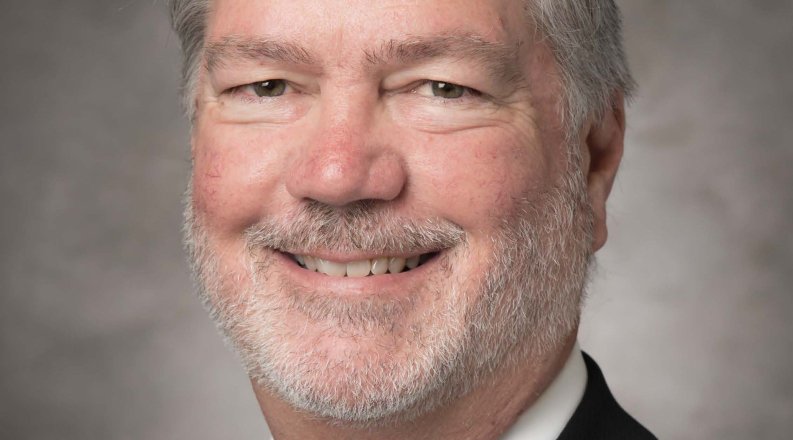Old Dominion University announced that Kenneth Fridley has been named dean of the Batten College of Engineering and Technology following a competitive nationwide search by Parker Executive Search.
Fridley, senior associate dean for administration at the College of Engineering at the University of Alabama (UA), will start his new appointment on July 1. He will succeed Khan Iftekharuddin, who served as the college's interim dean.
"Kenneth Fridley has substantial accomplishments in teaching and research and as a leader in educational innovation. We are thrilled he is joining the Monarch community," said Austin O. Agho, provost and vice president for Academic Affairs.
"I am tremendously excited to be given this opportunity to join Old Dominion University as the next dean of the Batten College of Engineering and Technology," Fridley said. "I look forward to working with the faculty, staff, alumni and friends of the Batten College to establish a strong vision for the future. We will advance toward that vision together and build upon the history of the many engineers who made the Batten College what it is today. My wife, Paula, and I are thrilled to become part of the ODU family."
Fridley has served as senior associate dean for administration at the College of Engineering at (UA) since 2014. He also was interim dean of the Honors College from 2019 to 2022 and head of UA's Department of Civil, Construction and Environmental Engineering from 2003 to 2014. In these roles, he built a culture of innovation, entrepreneurship and readiness for change.
At UA, he has led efforts to establish several programs, including a five-year BSCE/MSCE program; the interdisciplinary CUBE promoting student innovation in engineering; Bachelor of Science degrees in construction engineering, architectural engineering and environmental engineering; and the cross-disciplinary MSCE/MBA and MSCE/JD dual-degree programs.
Fridley also transformed honors education, creating and implementing honors student learning outcomes, enhancing curriculum, establishing the Honors College Partner program and creating honors pathways to graduate education.
During Fridley's tenure as head, the Department of Civil, Construction and Environmental Engineering at UA experienced significant growth in enrollment - with undergraduate and graduate enrollment more than doubling and doctoral enrollment tripling - and in research awards and expenditures. He also more than doubled the size of the faculty.
In addition, he improved access, diversity and inclusion, and created several mentoring and STEM advancement opportunities, including developing and coordinating a summer research program for 120 Brazilian students and creating the Engineering Positive and Intentional Change (EPIC) Scholars honors program.
Before joining UA, Fridley taught at Purdue University (1990-1992), the University of Oklahoma (1992-1994), Washington State University (1994-2001) and the University of Nevada, Las Vegas (2001-2003). At UNLV, Fridley served as associate dean of research and information technology for the Howard Hughes College of Engineering.
Fridley also brings significant experience developing and advancing philanthropic opportunities, economic development, externally funded research and other fundraising efforts. While at UA, he was involved in two capital campaigns, including the $1.5 billion initiative announced last year.
Recognized as a dedicated educator, Fridley has been the recipient of numerous university and national awards and honors. He was elected a fellow of the American Society of Civil Engineers in 2008 and received the ASCE ExCEEd Leadership Award in 2010. Fridley also was an early developer of interactive internet-based educational courseware for structural wood design.
A strong advocate for improving the education and preparation of future engineers, Fridley has chaired or served on a variety of local and national committees and advised nearly 40 master's and doctoral students. His former students have moved into leadership positions in industry, public service and academia.
Fridley is considered a leading expert in engineered wood construction, performance and hazard mitigation. He has published 65 refereed journal papers and is a co-author of the leading wood engineering design textbook, "Design of Wood Structures." Fridley has been responsible for more than $14.4 million in sponsored research, which is supported by a wide variety of federal, state and industry sources. Much of his research has directly impacted the civil engineering profession, resulting in changes in national design specifications, standards and codes.
Fridley earned his B.S. in civil engineering from Washington State University, his M.S. in architectural engineering from the University of Texas at Austin and his Ph.D. in civil engineering from Auburn University.
"We are pleased to welcome Kenneth Fridley to Old Dominion," said ODU President Brian O. Hemphill, Ph.D. "He has a distinguished career demonstrating excellence and innovation in engineering. I am confident that, under Dean Fridley's leadership and guidance, the Batten College of Engineering and Technology will continue to advance in supporting the University's forward-focused vision and fulfilling our important mission of teaching, research and service."
As dean of the Batten College, Fridley will lead efforts to promote excellence in instruction, research, student learning, and community engagement; demonstrate an unwavering commitment to diversity, equity, inclusion and social justice; attract external resources; and support the University's leadership role in regional economic development for the college's six departments.
The Batten College of Engineering and Technology enrolls nearly 3,000 students in more than 60 academic programs. The College, which has a strong network of 10,000 alumni from 50 states and 32 countries,promotes the advancement of engineering knowledge, both in creation and dissemination, by providing successful graduates and a continuously improving learning environment to its constituents, while maintaining high ethical, multicultural and global standards.



